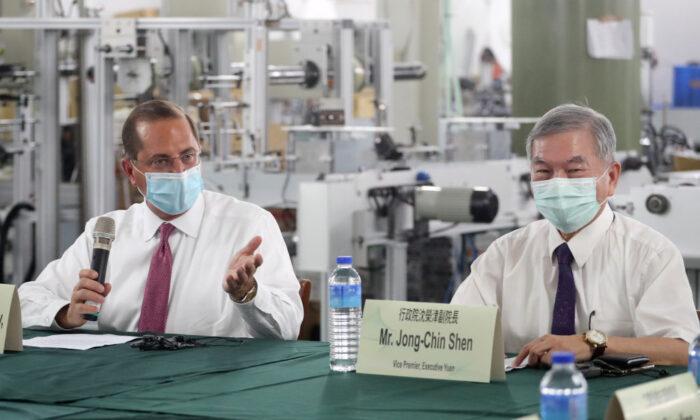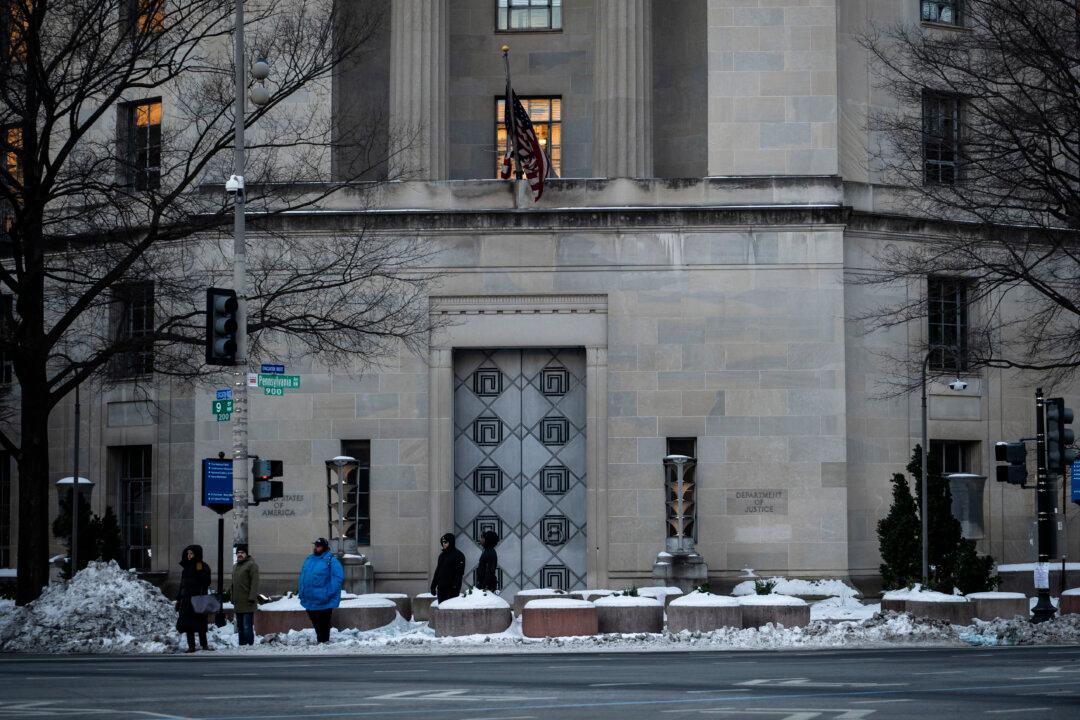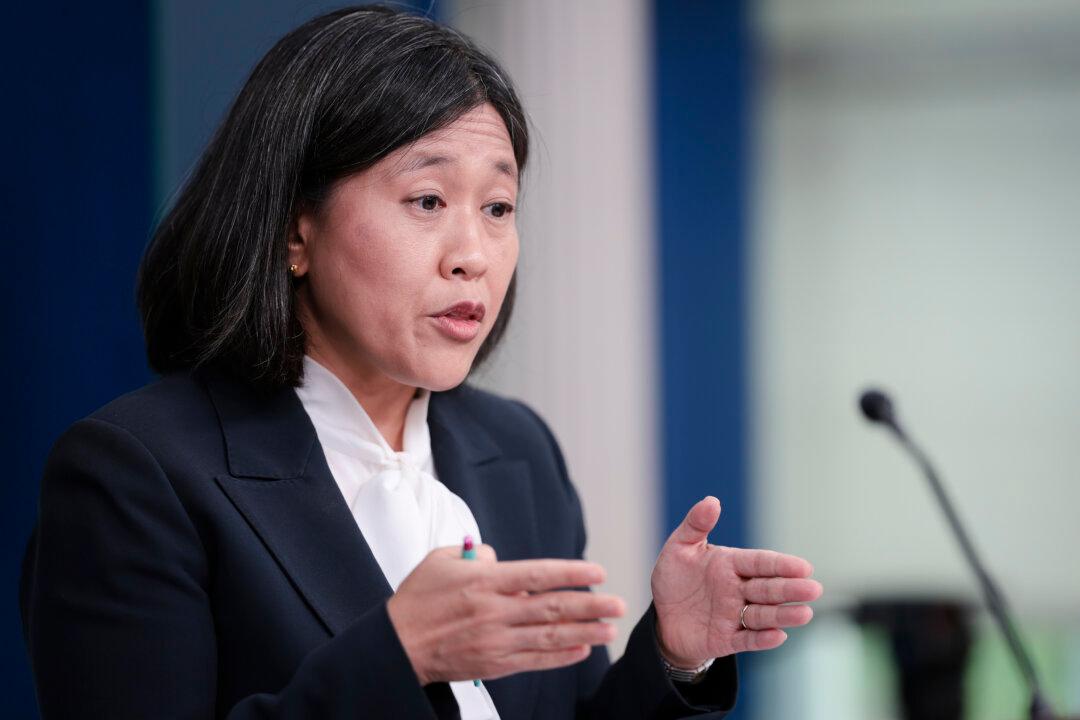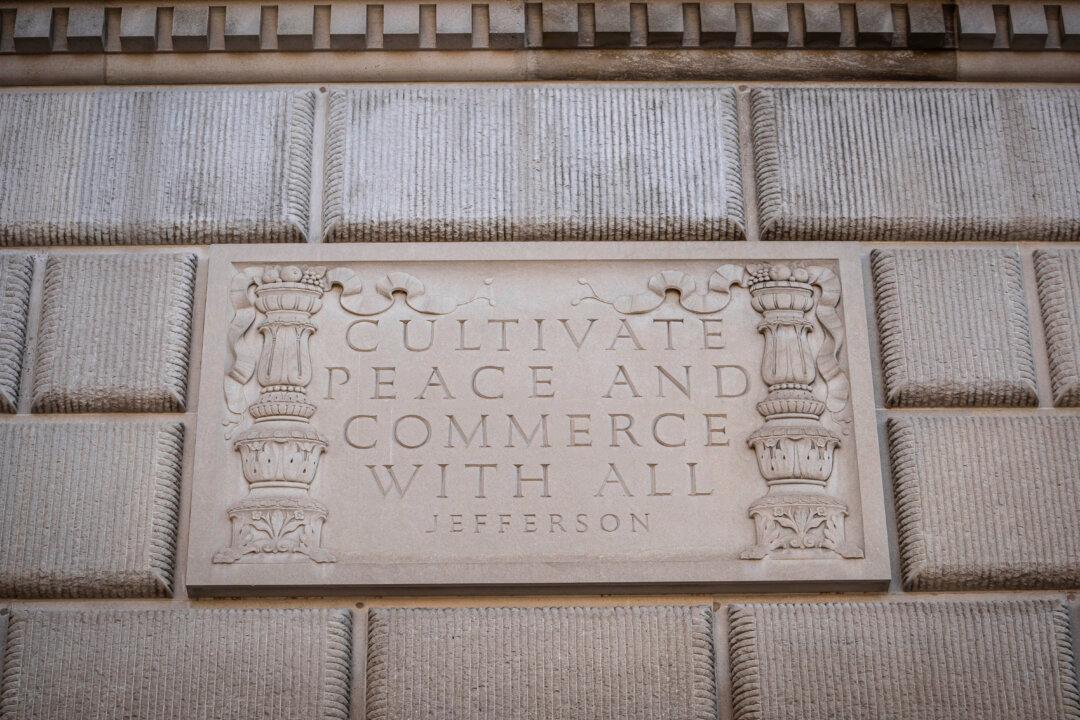TAIPEI, Taiwan—U.S. Health and Human Services Secretary Alex Azar directed more
criticism toward the Chinese Communist Party (CCP) over its mishandling of the coronavirus outbreak, on the final day of his four-day visit to Taiwan.
Compared to Taiwan’s transparent information-sharing, the Chinese regime showed “failure to share viral isolates from the initial [COVID-19] cases; the failure to disclose rapid human-to-human transmission; failure to disclose asymptomatic transmission; failure to allow in external experts to learn about the disease,”
said Azar on Aug. 12, hours before he and his delegation departed Taiwan.
Azar made the remarks during a telephone briefing with journalists that was hosted by the U.S. State Department of State’s Asia Pacific Media Hub in Manila.
COVID-19 is a disease caused by the
CCP virus, commonly known as the
novel coronavirus. The virus originated from the central Chinese city of Wuhan in late 2019 but Chinese authorities hid the outbreak from the public, holding back key information—such as the virus’s capability to spread among humans.
In late December, Beijing silenced eight doctors, among them ophthalmologist
Li Wenliang, when they disclosed on Chinese social media about the new form of pneumonia spreading in Wuhan. Li was later reprimanded by police for his actions.
“China could have–and should have–disclosed more information, more transparently, and more cooperatively regarding COVID-19,” Azar said.
He also pointed to Beijing’s pressuring of the World Health Organization (WHO) to stop other countries from adopting border controls and travel restrictions during the early stages of the pandemic. The move, according to Azar, resulted in the virus being spread to Europe, and travelers in Europe then spread the virus to the United States.
At a WHO briefing on Feb. 4, WHO head Tedros Adhanom Ghebreyesus
had advised countries against imposing travel restrictions, saying they “unnecessarily interfere with international travel and trade.”
Tedros added: “Such restrictions can have the effect of increasing fear and stigma, with little public health benefit.”
Azar applauded Taiwan again, one day after he made similar remarks during a
speech at a local university, for standing “in contradistinction to the conduct of the Chinese Communist Party” when fighting the outbreak.
He said he hoped Taiwan could be included in international platforms so that other countries could learn from the island state’s public health expertise.
Currently, Taiwan is not a member of the WHO due to opposition from Beijing, who sees the island as a part of its territory and thus claims it could represent the island at the world health body.
Taiwan has earned international plaudits for containing the spread of the virus. As of Aug. 12, Taiwan, with a population of about 24 million, has
481 confirmed COVID-19 cases and seven deaths, despite its close proximity to mainland China.
Azar said he and Taiwanese officials also discussed bilateral trade issues, but did not elaborate on details.
Taiwan has long expressed interest in signing a bilateral trade agreement with the United States. U.S. goods and services trade with Taiwan topped $94.5 billion in 2018,
according to data from the Office of the U.S. Trade Representative (USTR).
In July, Sen. Cory Gardner (R-Colo.)
urged USTR Robert Lighthizer to begin trade talks with Taiwan.
Azar added that he told leaders of the island’s private sector and government that Taiwanese companies could invest in the United States to manufacture personal protective equipment (PPE), such as masks.
The United States experienced a shortage during the initial stages of its local epidemic, due to lack of domestic manufacturing and China’s dominance in PPE production.
Before leaving Taiwan on Wednesday, Azar visited a local mask manufacturer. He also paid respects to late Taiwan President Lee Teng-hui at a memorial in Taipei, leaving the following words on the memorial wall: “President Lee’s democratic legacy will forever propel the U.S.-Taiwan relationship forward.”
Lee, known as the father of Taiwan’s democracy, passed away on July 30.





